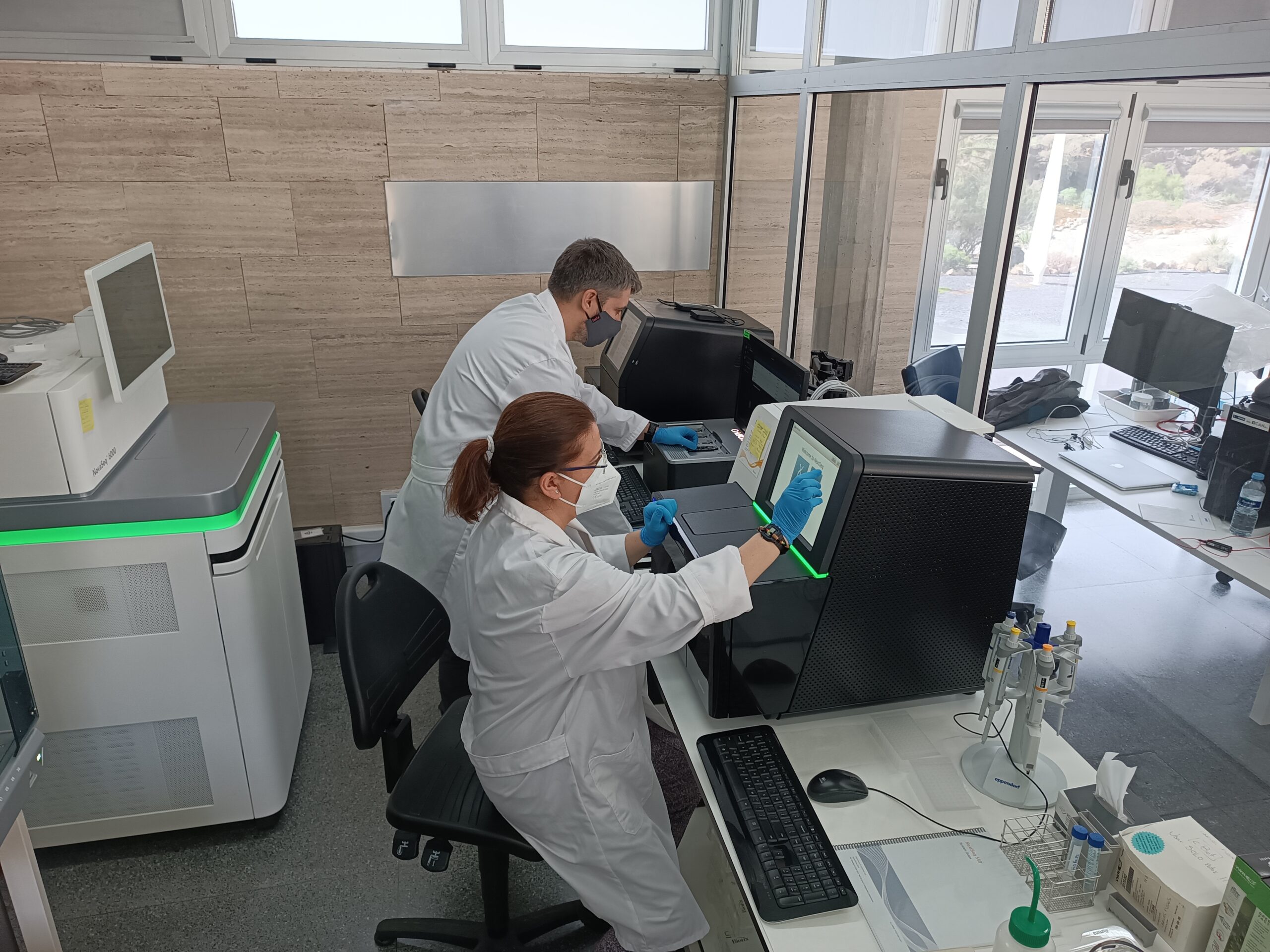Surveillance of the new SARS-CoV-2 coronavirus through a real-time portable sequencing solution (NANOVIR)
Details
Acronym: NANOVIR
Reference: PIFIISC21/37
Partners: Instituto Tecnológico y de Energías Renovables (ITER), Hospital Universitario Nuestra Señora de Candelaria (HUNSC) and Fundación Canaria Instituto de Investigación Sanitaria de Canarias (FIISC).
Duration: January 2022 – December 2023
Budget: 27.480,40 €
Co-financing: Fundación Canaria Instituto de Investigación Sanitaria de Canarias (FIISC)
Call for proposals from the Canary Islands Foundation for Health Research (FIISC) for the year 2021, granting support for Research, Development, and Innovation projects aimed at meeting the health needs of the population of the Canary Islands and improving the sustainability and solvency of the Canary Islands Health Service.
Overview of the project:
The emergence of SARS-CoV-2 virus variants that increase its transmissibility, virulence, or that evade the action of neutralizing antibodies generated after natural infection or vaccination, constitutes a significant public health issue. In this context, sequencing of the SARS-CoV-2 virus is crucial for epidemiological surveillance and, therefore, for controlling the COVID-19 pandemic.
The main objective of the NANOVIR project is to develop and implement a cost-effective solution for rapid sequencing of the SARS-CoV-2 coronavirus, which has practical utility in providing urgently needed healthcare responses. To achieve this objective, the project aims to incorporate the use of portable sequencing devices in the clinical setting, allowing for quick, facilitated, and decentralized responses. This will involve using third-generation on nanopore sequencing technology, combined with specific bioinformatics analysis.
Nanopore sequencing is characterized by its speed, real-time result generation, and the ability to analyze viral genetic variation from a few, or even a single patient, enabling swift responses in intra- and extrahospital outbreaks requiring immediate action.
The research group HUNSC-FIISC-ITER, which constitutes the central node of the Genomic Surveillance Network of COVID-19 in the Canary Islands, has had experience since the start of the state of alarm in March 2020, in diagnosing, researching, and epidemiological surveillance based on SARS-CoV-2 sequencing in the Canary Islands. This experience is complemented by involvement in various multicenter genomic studies on infections and critical patients, including the development of bioinformatics tools and the utilization of sequencing technologies and Big Data analytical techniques for genomic virus surveillance, supported by the use of local servers and the TeideHPC supercomputer.
The expected impact of NANOVIR is to contribute to accelerating the sequencing of concern variants of the SARS-CoV-2 virus, thereby enhancing the control of the COVID-19 pandemic.



